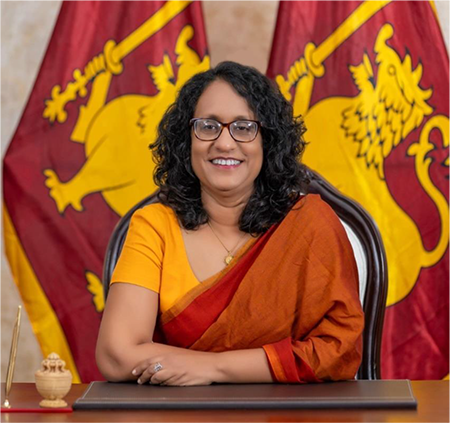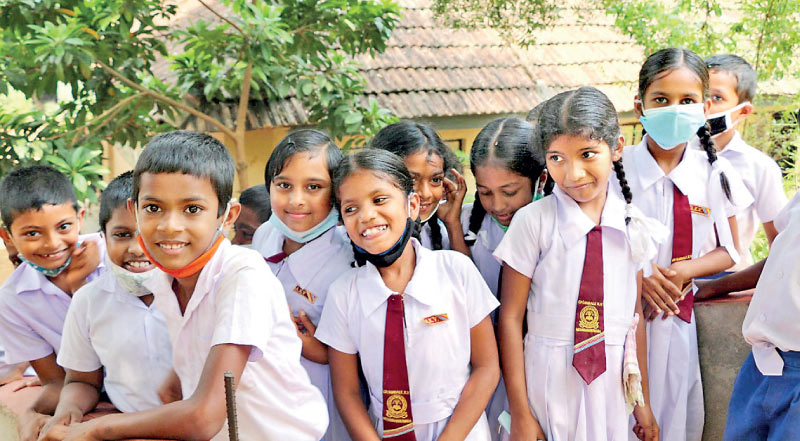
Sri Lanka is standing at a pivotal point in its history, where education is no longer just a tool for knowledge acquisition, but a driving force for national development, global integration, and technological transformation. Under the leadership of Prime Minister Dr. Harini comprehensive set of new education reforms is being introduced to align the Sri Lankan education system with the demands of the 21st century
Embracing Technology in the Classroom
One of the most significant elements of the reform package is the integration of digital technology into mainstream education. The government plans to equip all public schools with smart classrooms, provide students with tablets or laptops, and implement a national e-learning platform. According to Prime Minister “Technology is not the future of education — it is the present. We must adapt now.”
Teachers will be trained in digital pedagogy, and online learning content will be made available in Sinhala, Tamil, and English. This initiative aims to bridge the urban-rural digital divide and ensure equitable access to modern learning tools for all students.
Curriculum Modernization and Global Alignment
The outdated curricula that emphasize rote memorization are being replaced with competency-based learning models. These new curricula will include emerging subjects like Artificial Intelligence, Robotics, Climate Science, Emotional Intelligence, and Global Citizenship.
The Ministry of Education has already begun collaborations with international academic institutions to benchmark Sri Lankan syllabi against global standards, especially in STEM (Science, Technology, Engineering, and Mathematics) fields. Prime Minister Mathiniya emphasizes that Sri Lankan students should not just compete regionally, but globally.
Vocational and Skill-Based Education Tracks
To tackle unemployment and underemployment, the new education reforms strongly promote technical and vocational education (TVET). Starting from Grade 9, students will be given the option to pursue skill-based tracks in addition to academic paths. These include fields like ICT, hospitality, plumbing, agriculture technology, graphic design, and renewable energy.
A National Skills Passport system will be introduced, enabling students to track and validate their skill development. This will be integrated into a centralized digital profile, which employers can access when recruiting.
Teacher Development and Welfare
Recognizing that the success of education reforms hinges on the quality of educators, the government is launching a Teacher Excellence Framework (TEF). This includes:
Continuous professional development programs
Salary revisions and incentives based on performance
A national digital ID for teachers to access resources, track achievements, and connect with global teaching communities
A special budget allocation has also been approved for improving teachers’ well-being, with mental health support programs, better housing, and retirement benefits.

Equity, Inclusivity, and Regional Upliftment
A core goal of the reforms is to reduce disparities in education across provinces. Under the “One Sri Lanka, One Education” policy, rural and conflict-affected areas will receive prioritized infrastructure investment, multilingual instruction, and community-based educational outreach.
Special attention is also being given to inclusive education. New guidelines mandate that all schools must be equipped to educate students with disabilities through trained support staff, assistive technologies, and inclusive classroom settings.
Higher Education and Global Collaboration
The university system is also being transformed. A bill is in motion to allow public-private partnerships in higher education to increase capacity, promote research, and expand course offerings. Foreign universities will be invited to open satellite campuses in Sri Lanka, creating more global opportunities for local students.
Research and innovation are at the heart of this reform. Prime Minister Dr. Harini has announced the creation of a National Innovation and Research Fund (NIRF) to support young researchers, particularly in the areas of sustainable development and AI.
Citizenship Education and Ethical Leadership
Beyond academic knowledge, the reforms emphasize the cultivation of ethical, socially responsible citizens. Schools will conduct weekly civic education classes focusing on democratic values, anti-corruption awareness, and leadership skills. As Dr.Harini notes, “We must not only produce engineers and doctors, but also ethical leaders who are ready to serve the nation with integrity.”
The education reforms proposed under the leadership of Prime Minister Dr.Harini are ambitious, holistic, and deeply forward-thinking. While implementation will be challenging, the vision is clear: to build a knowledge-based economy where every Sri Lankan child is empowered to succeed in a rapidly changing global landscape.
As these reforms begin to take root, Sri Lanka could emerge as a regional model of education innovation and equity, ensuring that no child is left behind, and every learner is prepared for the future.